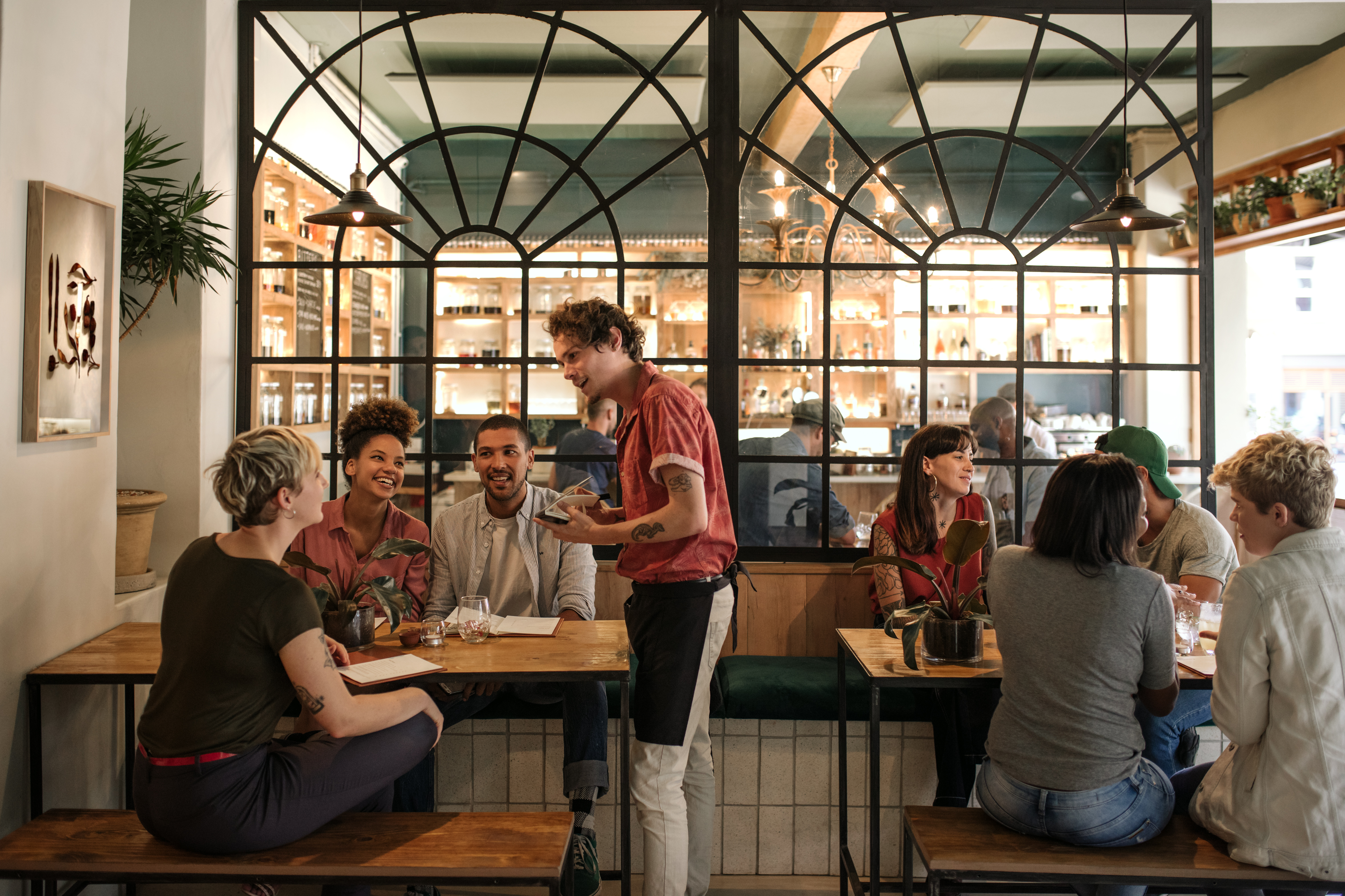What Type of Insurance Do You Need for a Restaurant?

Reality Bites
In a recent interview with The Washington Post, Pinky Cole, the founder and CEO of a small restaurant chain, discussed how a grease fire almost destroyed her dream. Cole was a first-time restaurateur, and she didn’t carry fire insurance.
So when a grease fire broke out at the restaurant in 2016, Cole lost everything. She was broke and soon after left the restaurant industry.
However, the entrepreneurial spirit never left Cole, and in 2018, she decided to try again and opened her new restaurant in Atlanta. She now has multiple restaurants and her restaurant franchise is estimated to be worth about $100 million.
The sad but honest truth is Cole’s story is likely the exception, not the rule. Most restaurant owners would not be able to recover from that big of a financial hit.
So how do you evaluate what types of coverage your operation needs or doesn’t need?
How can other insurance coverage help protect different needs and types of restaurants?
To better answer these questions and more, let’s look at some of the situations you could find yourself in and the most common types of insurance for restaurants. If you get stuck after reading it, just reach out to our team — we are always here to help.
Is insurance for restaurants really necessary?
We believe it is a necessary evil but an important one. We’re always going to recommend you have some kind of coverage.
However, if by “necessary,” you mean “required by law,” the answer is this depends largely on where you live. In this blog, we’ll be talking specifically about Oklahoma because that’s where our expertise lies. Some general principles may apply to your area, but if you need guidance on what insurance your business is in your area, please visit your local or state government’s commerce or insurance regulators for more information.
What Oklahoma Requires for Businesses
Overall, for many businesses, you don’t even need a license to operate in the state as a business in Oklahoma. This does come with some caveats, though:
- You will still need to file paperwork with the Oklahoma Secretary of State for corporate structure and taxation purposes
- You will need to remit sales tax to the Oklahoma Tax Commission
- You will need to research county and local regulations in case these diverge from state requirements
Business insurance requirements are often just as sparse in Oklahoma.
What Oklahoma Requires for Restaurants
There is nothing in the Oklahoma State Statutes about what requirements are set forth to create a restaurant, merely that the rules are governed by the Oklahoma Department of Health and formalized in the Oklahoma Administrative Code (OAC).
So, if you are a restaurant in Oklahoma, you will need to fulfill the following requirements:
- You will need a food establishment license and food handlers permits, both governed by the Oklahoma Department of Health
- Follow all guidelines written in the OAC 310:257
- Follow county and local ordinances
The only restaurant insurance requirements governed by statute are the following:
- Workers’ compensation insurance, as all employers over five employees must possess this coverage (with some rare exceptions)
- If you serve alcohol, liquor liability insurance that covers bodily injury and property damage
So, if most coverage is optional in Oklahoma, why do I need it?
While it’s great to hope and plan for the best the future has to offer, it’s also wise to plan for the worst. That means making sure that you protect your business with the right restaurant business insurance policies.
You’re probably still thinking that absolutely nothing could go wrong in your business because, as a restaurant owner, you’ve put together this amazing business plan. In a perfect world, we would love it if insurance weren’t needed. However, the unexpected can happen — just like the fire at Cole’s restaurant.
If you’re still not convinced, consider these scenarios.
- If someone slips and falls on your property, you may be liable for their injuries regardless of whether they’re an employee or a customer. This includes icy sidewalks in the middle of winter in front of your establishment.
- If your establishment has a bar and someone has too many drinks and gets into a car accident, you might get sued and held responsible.
- If you have vehicles for your business and a wreck occurs, your personal auto insurance may not cover it since it was being used for business.
- If you operate an upscale restaurant that offers valet parking, who pays if one of your parking attendants puts a ding on a patron’s vehicle?
- What if one of your employees sues you because another one of your employees was harassing them?
Saying all of this isn’t to scare you, even if this is an intimidating list. A good insurance broker will walk you through all these potential scenarios and help you select the coverage that’s going to protect your investment.
Types of Insurance for Restaurants
First, let’s look at the basics of what makes up restaurant insurance. Restaurant insurance is a catch-all term for an insurance policy that protects a small business that operates in the food service industry.
You could own a traditional restaurant with or without a bar, be a caterer, or a baker, or maybe you own a food truck. Regardless, a small business insurance policy protects your business from various types of claims.
Workers' Compensation Insurance
Required by law for most employers in Oklahoma, as previously discussed, worker’s comp insurance pays for medical and indemnity benefits for workers with a job-related injury or illness.
General Liability Insurance
General liability is one of the most important coverage types a restaurant owner can carry, as it covers accidents and injuries that might occur on your property. If a customer is injured in a fall, gets food poisoning, or sustains any type of bodily injury, general liability will help cover the cost of medical care and legal defense in the event of a resulting lawsuit.
Commercial Property Insurance
Property insurance covers the replacement of the building housing your restaurant and your furnishings and equipment in the event of a fire or other covered events. It also covers damages from theft, vandalism, or other losses. If you are renting a space for your restaurant, you can select coverage for just your property.
Business Interruption Coverage
If your restaurant has to close unexpectedly due to damages from a covered event such as a fire or flood, this coverage provides a financial benefit that helps you weather the storm. These funds can help make sure your employees, vendors and other bills are paid until you can reopen.
Liquor Liability Insurance
A restaurant that serves alcohol needs the protection offered by liquor liability insurance. Should one of your customers injure someone or hurt themselves after buying or consuming alcohol sold by your restaurant, this coverage will help cover medical and legal costs and property damage.
Food Contamination Insurance
This coverage helps protect you against the financial loss of food in the event it is mishandled, improperly stored, or found to cause an illness. It will help pay to replace the lost food, sanitize equipment, and in the event of a shutdown, provide payment for lost income.
Spoilage Insurance
Should your restaurant’s food go bad due to an extended power loss, you can also purchase coverage to help recover the damages. This type of coverage typically carries a deductible, so if you purchase it, make sure it has a deductible you can afford.
Commercial Auto Insurance
Commercial auto is another legally required insurance if you have a vehicle used for your restaurant. For example, if you supply a catering or delivery vehicle, or one that is used to transport supplies, it will need to be covered.
If an employee or someone else who is associated with your restaurant is using their personal vehicle for restaurant business and is in an accident, your restaurant could be held liable for any damages. If this is something you believe you may encounter during the course of your business, you might want to consider hired and non-owned auto liability coverage to protect your restaurant.
Employee-Related Coverages
A couple of other coverages you may want to consider are employee related. Employee Dishonesty Coverage covers the financial cost of employee theft while Employment Practices Liability Insurance will help provide the legal costs to defend your interests if an employee claims wrongful termination, discrimination or harassment.
Business Owner's Policy (BOP)
As you might expect, your insurance costs increase with each coverage you add. In an effort to save, many restaurateurs bundle general liability and commercial property insurance into a business owners policy (BOP). By bundling, the owner can expect overall discounted rates. Policies can be further customized to include other coverages as well.
Hopewell Can Help
If you are still not sure about the coverage you need, we’re here to help. As an independent insurance agency, Hopewell will work with you to determine your restaurant’s coverage needs.
We know that insurance gets expensive. That’s why we will price shop to find the best rates and types of policies to make sure you’re getting the best coverage without costly, unneeded extras.
We offer free, no-obligation insurance estimates. Hopewell makes it easy to get started. Contact us today.

FORREST BENNETT
Forrest Bennet is the owner and founder of Hopewell Risk Advisors, an independent insurance agency writing personal lines of insurance and commercial policies for industries ranging from cannabis to restaurants. A born-and-raised Oklahoman, Forrest has been fighting to provide great insurance coverage since 2021. He considers Hopewell Risk Advisors “honest brokers in the protection racket.”